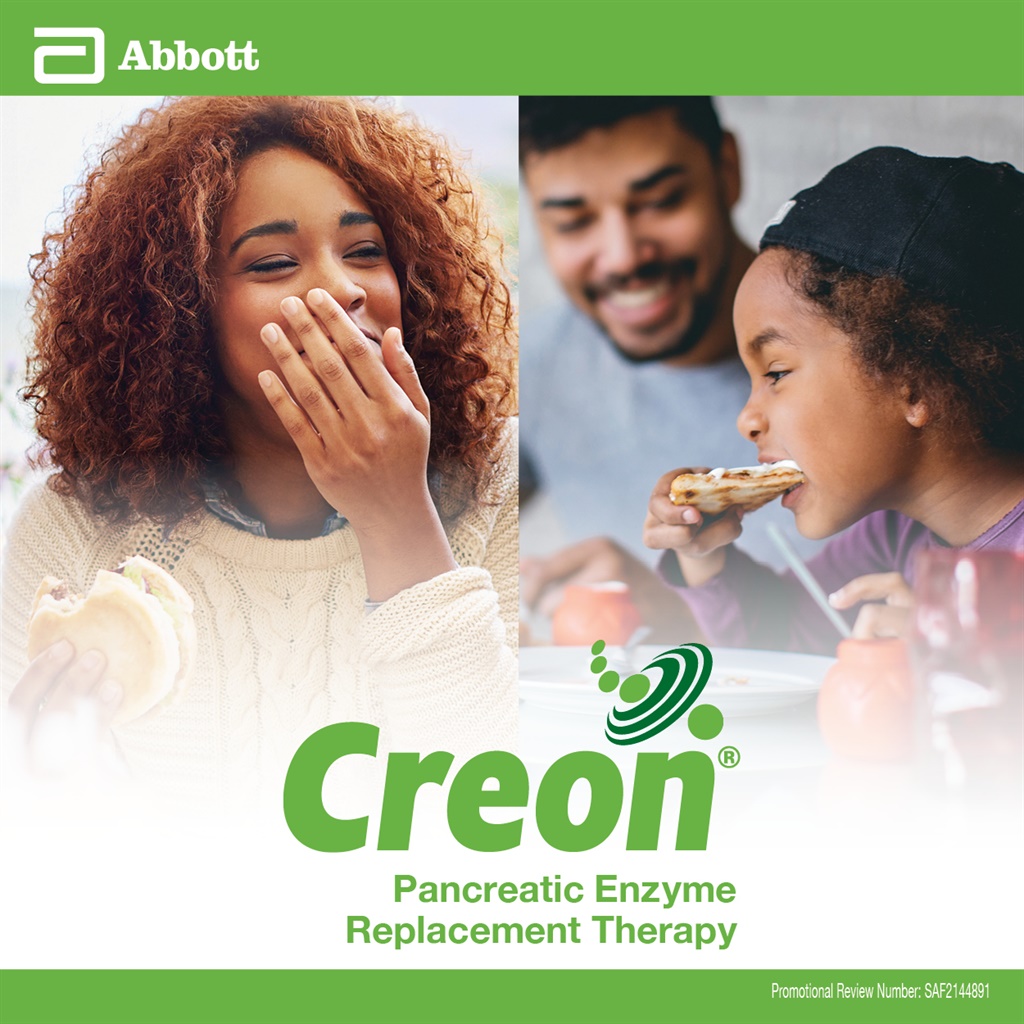
When the pancreas is healthy, it produces several enzymes – a group of proteins that work as catalysts in digestion – and secretes them into the small intestine, where they work to help digest food.1
These different enzymes digest carbohydrates, proteins and fats.1 In people with pancreatic exocrine insufficiency (PEI), the pancreas doesn’t make enough of these enzymes to adequately break down food into absorbable components.1
This can lead to serious nutritional deficiencies and the symptoms these deficiencies cause.1 However, with medications and dietary changes, it is possible to manage PEI.1
What causes PEI?
PEI is the result of pancreatic damage.1 Causes include chronic pancreatitis; alcohol abuse; pancreatic cancer; type 1 diabetes; genetic disorders such as cystic fibrosis or Shwachman-Diamond syndrome; inflammation from digestive diseases such as Crohn’s disease or celiac disease; or as a complication from surgery on the pancreas or nearby parts of the digestive tract.1
What are the symptoms of PEI?
The most common symptom of PEI is fatty stools.1 This occurs when the digestive system is unable to absorb dietary fats.1 Instead, these fats pass through the intestinal tract with waste products.1
The stools tend to be oily, large, pale, and foul-smelling.1 Intestinal gas and bloating can also occur from the fermentation of undigested food in the colon.1
Many individuals with PEI will experience nutritional deficiencies, especially of fat-soluble vitamins such as A, D, E, and K, since they are not absorbing enough fats to help absorb these vitamins.1
PEI can also cause weight loss because patients do not get enough calories from the food they eat.1 Weight loss is more common in people who have PEI in addition to a digestive disease, such as Crohn’s disease.1 Some symptoms of nutrient malabsorption, and their typical causes, include: fatigue, anaemia, and bleeding disorders.1
Diagnosis of PEI
When you have PEI, you probably know your body doesn’t feel right. Still, it’s not always easy for doctors to diagnose your condition.2
The classic symptoms of PEI – weight loss, greasy and foul-smelling stools that float, stomach cramps, and diarrhoea – mimic the telltale signs of many other digestive diseases.2
That makes it hard for doctors to know exactly which condition is causing you trouble.2 To add to the confusion, not everyone with PEI has the same symptoms. Other warning signs can be too subtle for you to notice.2
To figure out what’s going on, your doctor will use tests to see how many nutrients your body is absorbing from food.2
These include:
- Blood work. The lab will check your blood for anaemia, a condition where your body doesn’t have enough healthy red blood cells, as well as vitamin B12, iron, and folate.2 The lab might also look for a chemical your pancreas makes to help with digestion called trypsinogen.2 A level that’s too high is a sign of problems.2
- Faecal elastase test. The lab will check your stool samples for elastase, an enzyme your pancreas makes to help your body digest protein.2 If you have PEI, the amount might be less concentrated than normal.2
- 3-day faecal test. You’ll need to collect samples of your stool for about three days and give them to your doctor.2 The lab will test for the amount of fat they contain.2
- CT scan. This machine takes images of the upper abdomen, providing your doctor with a picture of the area.2
Treatment of PEI
Apart from a healthy diet, the main treatment for PEI is pancreatic enzyme replacement therapy (PERT).3 You take prescription pills that replace the enzymes your pancreas isn't making.3
These enzymes break down your food so that you can more easily digest and absorb it, and must be taken during or immediately after your meals.3 If you take them before you eat, the replacement enzymes may move through your stomach before your food gets there.3
If you are experiencing any symptoms of a pancreatic digestion problem, speak to your healthcare provider for more information.
References1. Gastrointestinal Society. Canadian Society of Intestinal Research. Pancreatic Exocrine Insufficiency. [22 June 2020]. Available from: https://badgut.org/information-centre/a-z-digestive-topics/pancreatic-exocrine-insufficiency/2. Web MD. Why Is EPI Hard to Diagnose? [22 June 2020]. Available from: https://www.webmd.com/digestive-disorders/epi-diagnose#1 3. Canadian Digestive Health Foundation. [22 June 2020]. Available from: https://cdhf.ca/digestive-disorders/pancreatic-exocrine-insufficiency-pei/what-is-pancreatic-exocrine-insufficiency-pei/#:~:text=Pancreatic%20Exocrine%20Insufficiency%20(PEI)%20is,break%20down%20and%20absorb%20nutrients. S1 Creon®10000. Each capsule contains enteric-coated granules of Pancreatin 150 mg. Registration Numbers: Namibia:04/11.1/1015; South Africa:33/11.1/0340.For full prescribing information refer to the package insert approved by the Medicines Regulatory Authority. Abbott Laboratories S.A. (Pty) Ltd. 1940/014043/07.Abbott Place, 219 Golf Club Terrace, Constantia Kloof, 1709. Tel: (011) 858 2000. Date of publication: July 2020. Promotional Review Number: SAF2144891




 Publications
Publications
 Partners
Partners















